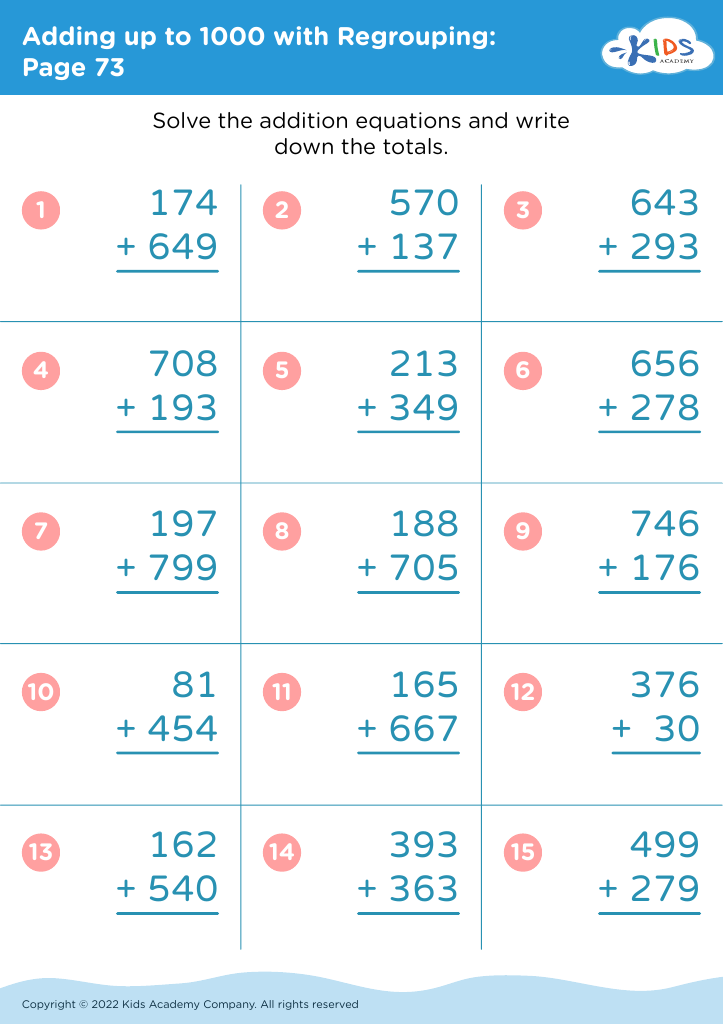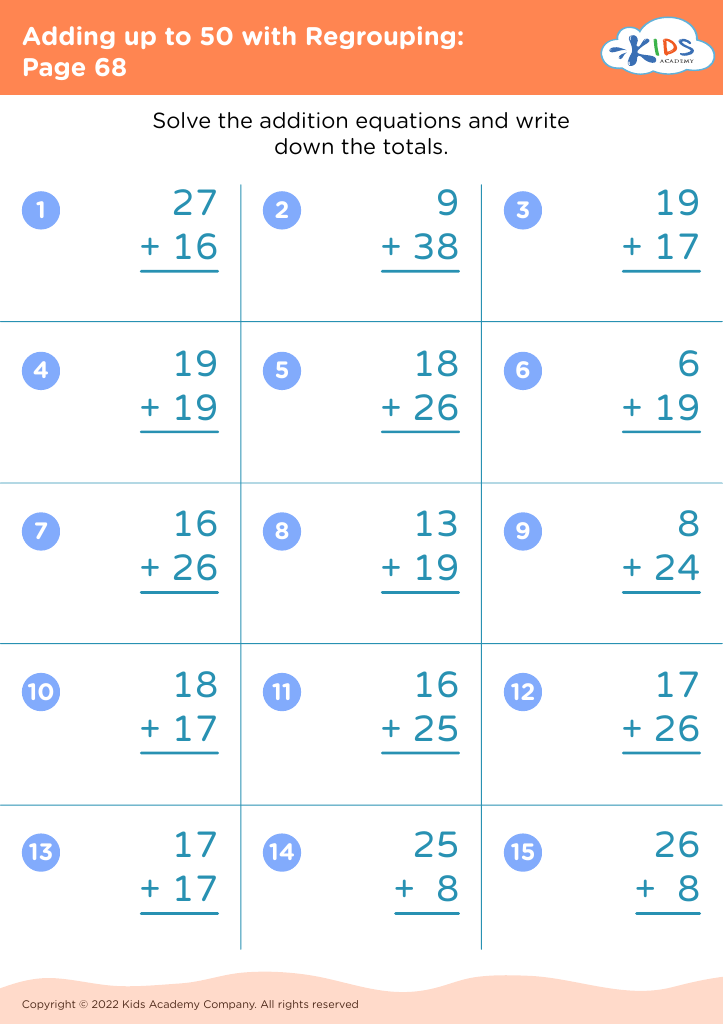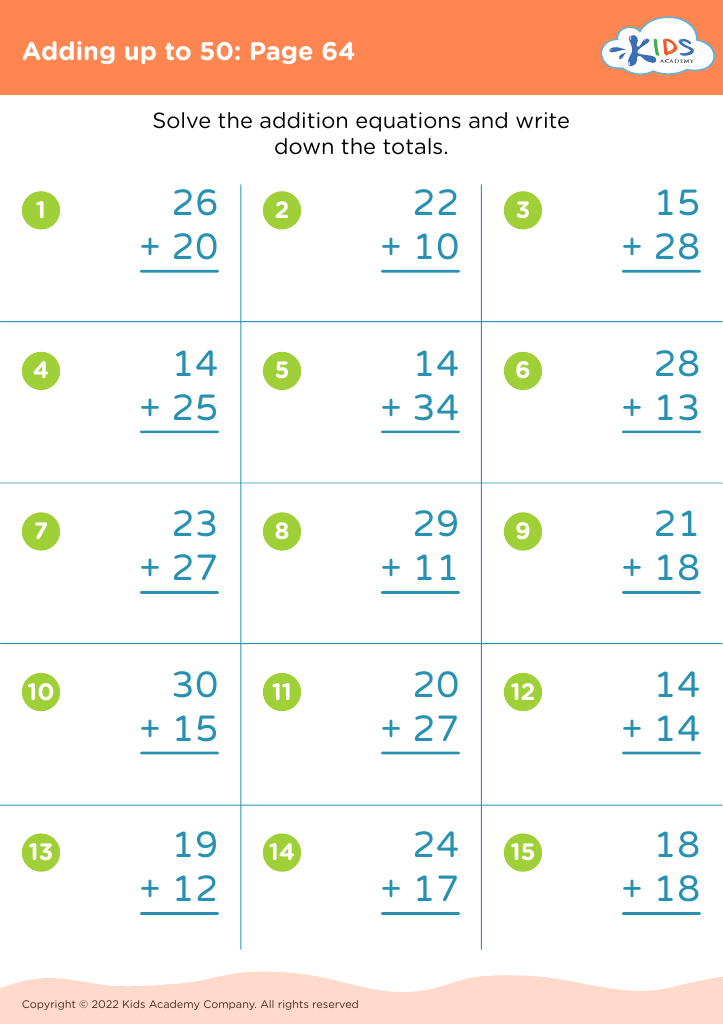Developing logical thinking Math Worksheets for Ages 6-9
7 filtered results
-
From - To
Enhance your child's logical reasoning skills with our engaging Math Worksheets designed specifically for ages 6-9. These worksheets offer a variety of fun, interactive activities that promote critical thinking and problem-solving abilities. Each exercise encourages kids to think independently and apply mathematical concepts in real-life scenarios. From puzzles to pattern recognition, our resources aim to make learning enjoyable while building a solid foundation in logical thinking. Ideal for classroom use or home practice, these worksheets empower young learners to tackle mathematical challenges with confidence. Explore our collection today to support your child's intellectual growth in an exciting way!
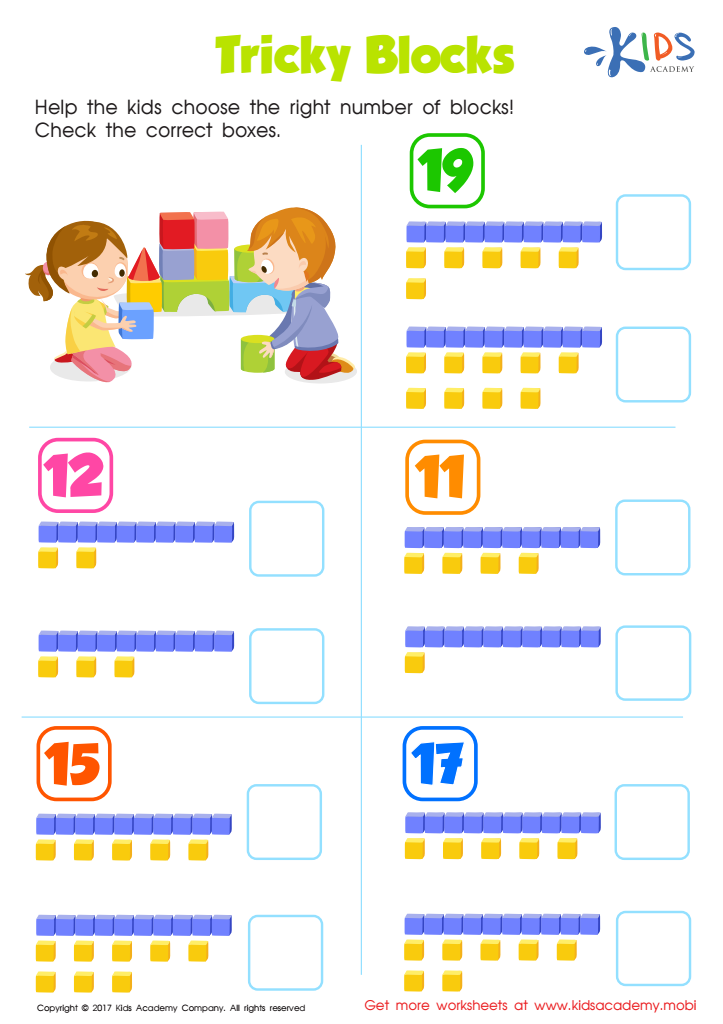

Tricky Blocks Worksheet
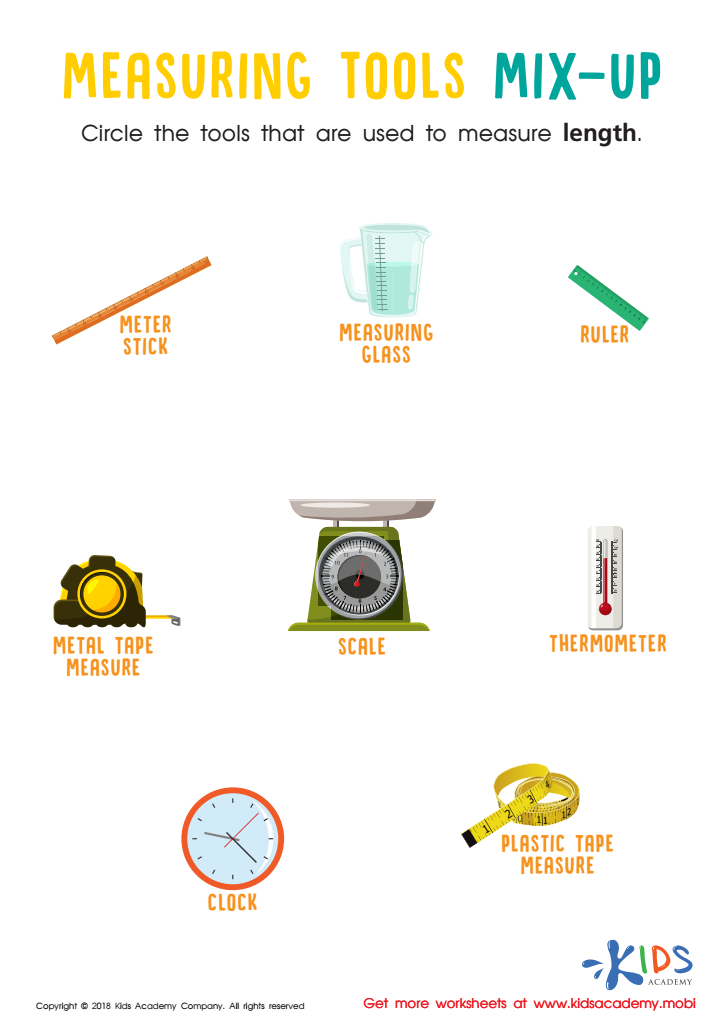

Measuring Tools Mix–up Worksheet
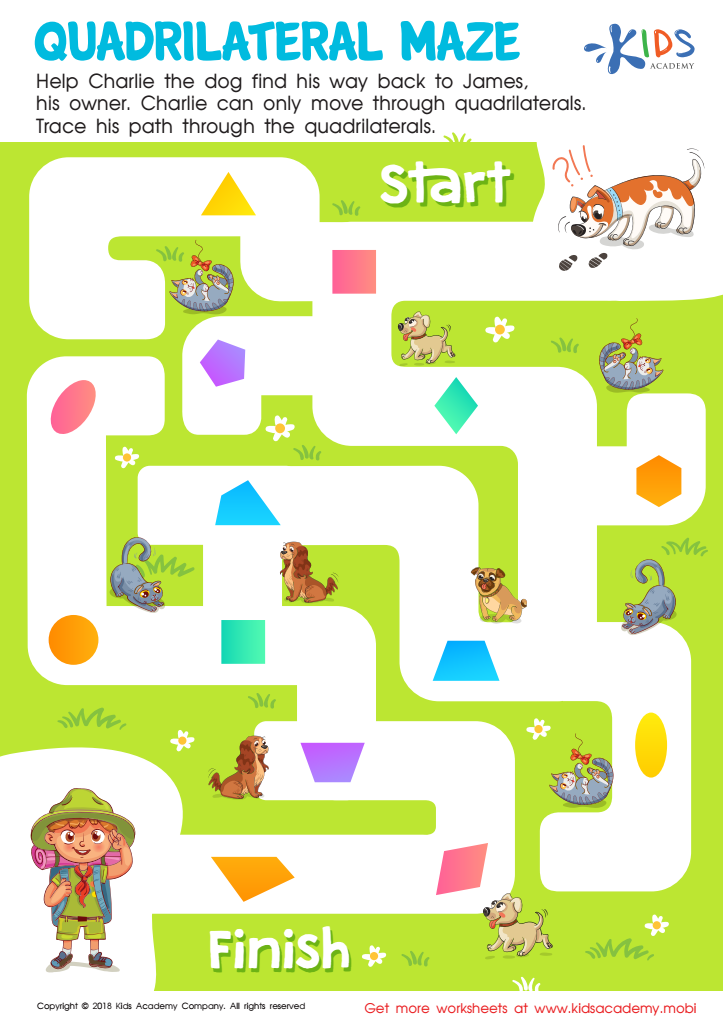

Quadrilateral Maze Worksheet
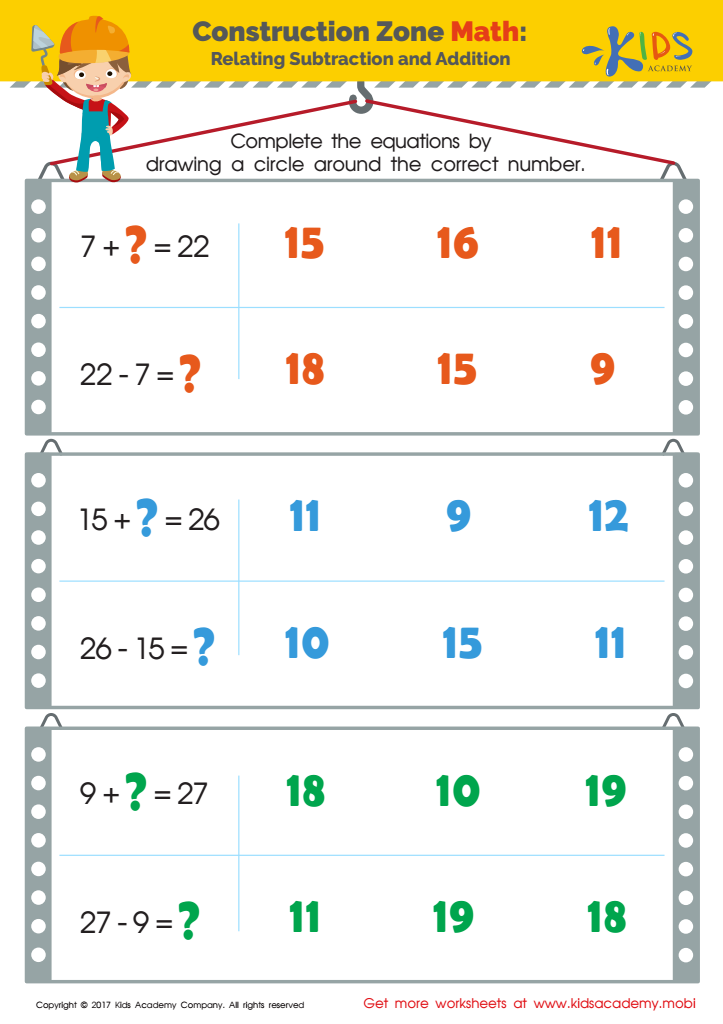

Related Addition and Subtraction Facts Worksheet
Developing logical thinking in math for children aged 6-9 is crucial for their overall cognitive development and can have a lasting impact on their future learning. At this stage, children are beginning to grasp fundamental mathematical concepts and operations, making it an ideal time to nurture logical reasoning skills. This includes the ability to analyze information, identify patterns, draw conclusions, and solve problems systematically.
Logical thinking in math enhances children's numerical fluency and confidence, allowing them to tackle more complex concepts as they progress in school. It also lays the groundwork for critical thinking, enabling kids to approach real-world situations with a problem-solving mindset. Parents and teachers can facilitate this by introducing engaging activities that promote exploration and reasoning, such as puzzles, games, and hands-on projects.
Furthermore, strong logical thinking skills are essential not just in mathematics but across all subjects, aiding children in making connections between ideas, enhancing comprehension, and fostering creativity. By investing time and thought into developing these skills, parents and educators are equipping children with the tools they need to succeed in academics and beyond, ultimately encouraging a lifelong love for learning.
 Assign to My Students
Assign to My Students

